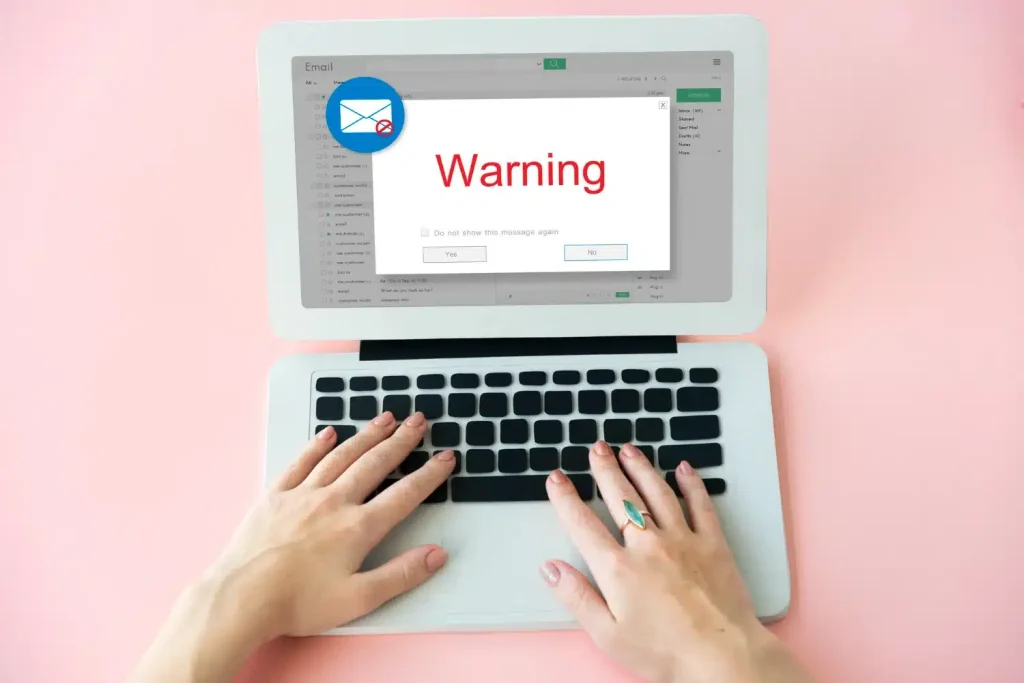
The authorities of India have issued an urgent warning to citizens regarding the circulation of counterfeit emails impersonating the CEO of the Indian Cyber Crime Coordination Centre (I4C), Rajesh Kumar. These fake emails, bearing deceptive subject lines such as “Urgent Notification!” and “Court Notification,” falsely accuse recipients of cybercrimes and urge them to respond.
The PIB Fact Check team has flagged these emails as fake, emphasizing that they are designed with malicious intent to mislead recipients and exploit their fears.
The Threat of Fake Emails
The fraudulent emails misuse the logos of prominent Indian institutions, including the Indian Cyber Crime Coordination Centre (I4C), Intelligence Bureau (IB), and Delhi Police, to lend an air of credibility. They also falsely associate themselves with the names and particulars of senior officials to deceive recipients. These fake emails have been targeted at government offices, individuals, and organizations, making them appear as official correspondence.
In a tweet from its official handle, @PIBFactCheck, the bureau clarified that these emails are entirely fake and deceptive. “It is important to clarify that neither the undersigned nor this unit has initiated such emails. Furthermore, no authorization has been granted for the production or dissemination of such content,” release stated.

The Impact of Cybercrime in India
The rise of cybercrime in India is a growing concern. According to Cyberabad Commissioner of Police Avinash Mohanty, cybercrime accounts for over 30% of the cognizable crimes in the Cyberabad commissionerate, with projections indicating it could rise to 50% in the near future. Alarmingly, citizens in India lose an estimated ₹1.3–₹1.5 lakh to cybercriminals every minute. This staggering statistic underscores the need for heightened awareness and vigilance against online fraud and scams.
The recovery rate for cybercrime losses in the country remains dismally low, averaging under 20%. This makes the financial and emotional toll on victims even more significant. The surge in cybercrimes affects not only individuals and businesses but also government agencies, which have been targeted in incidents of espionage and data breaches.
India has witnessed several high-profile data breaches in recent years, with one of the most notable involving Aadhaar, the country’s unique citizen identification system. This breach compromised extensive personal information, including bank details, addresses, and biometrics, of over a billion Indians. In 2024, the cost of data breaches in India surged to over two million U.S. dollars, highlighting the increasing sophistication of cyberattacks and their devastating consequences.
How to Stay Safe
The circulation of fake emails impersonating officials and institutions is a reminder of the importance of digital vigilance. These emails often contain red flags, such as spelling errors, generic greetings, or urgent calls to action, which can help recipients identify them as fraudulent.
Here are some practical tips to protect yourself:
- Verify the Source: Always check the sender’s email address and verify its authenticity. Official emails will typically use verified domains.
- Do Not Respond to Suspicious Emails: Avoid clicking on links or downloading attachments from unknown or suspicious emails.
- Report Cybercrime: Lodge complaints about suspicious emails or cybercrime activities at the National Cyber Crime Reporting Portal (https://cybercrime.gov.in/) or through your local police.
- Enable Two-Factor Authentication (2FA): Add an extra layer of security to your online accounts to prevent unauthorized access.
- Regularly Update Passwords: Use strong, unique passwords for each account and change them regularly.
Role of Government Agencies
To combat the increasing threat of cybercrime, government agencies have been actively raising awareness and strengthening their cybersecurity frameworks. Initiatives like I4C aim to coordinate efforts to combat online fraud and ensure the safety of Indian citizens in cyberspace. However, the onus also lies on individuals to stay informed and cautious.
The Press Information Bureau has been at the forefront of debunking fake news and misinformation through its Fact Check initiative. By alerting citizens about fraudulent activities, the PIB aims to reduce the impact of such scams and foster a culture of digital responsibility. Their efforts are particularly crucial in a digital landscape where cybercriminals continuously adapt their tactics to exploit vulnerabilities.
Conclusion
As India continues its digital transformation, the need to address cybersecurity challenges becomes more urgent. The circulation of fake emails impersonating officials is a stark reminder of the growing cybercriminals. Citizens must remain vigilant, verify the authenticity of any communication, and report suspicious activities to the authorities.
By staying informed and adopting best practices in digital safety, we can collectively safeguard against cyber threats and build a more secure online environment.
Remember, if you receive an email claiming to be from a government agency or official with alarming accusations, pause, verify, and report. Your caution can be the first line of defense against cybercrime.
Source: Read More


